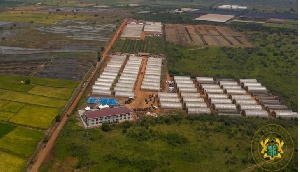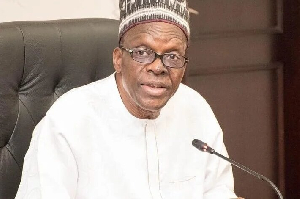Globally, there is a concerted effort to boost agriculture production through all year farming and considerable reduction in post-harvest losses. As such, enhanced farming methods and best agricultural practices have been adopted to increase crop yield.
In Africa, the agriculture sector has made some progress, nonetheless, the continent remains a net importer of food. This is in spite of the fact that the continent has some 60 percent of the world’s arable lands.
Unpredictable weather patterns have compounded farming seasons across many African countries. As such, some are finding ways to introduce technology to mitigate the effect of harsh climatic conditions. Greenhouse technology has been touted as the game-changer owing to its enormous benefits.
Greenhouses are “permanent glass or plastic-covered structures that allow farmers to grow vegetables and fruits year-round through mechanically-controlled temperature and irrigation systems.”
Ghana is among the few countries in Africa to embrace Greenhouse technology in a bid to increase food production and also train entrepreneurs interested in commercial farming. The country in August commissioned a 75-Greenhouse Village estate touted as the biggest in the West African sub-region.
Located in Dawhenya east of the capital Accra, the Greenhouse project has the capacity to produce 4,500 tonnes of tomatoes annually, bringing in a yearly revenue of some $1 million, said President Nana Akufo-Addo, who is up for reelection in December.
Also, he said the project can employ a total of 230 people. Produce from the farm are at the moment sold in some of Ghana’s biggest shops such as Shoprite, the Farmers Market, Eden Tree, among other grocery shops.
The Greenhouse Village has other facilities such as a ninety-two (192) bed hostel, a multipurpose conference center, and health and recreational facilities attached to it.

With Covid-19 disrupting food supplies globally, President Akufo-Addo believes the adoption of Greenhouse farming amounts to developing domestic solutions to address food shortage. “We must develop domestic solutions to combat the challenges presented by the pandemic, and strengthen indigenous productive capacity,” he said at the launch of the Greenhouse project.

Click to view details



Business News of Sunday, 6 December 2020
Source: face2faceafrica.com

















